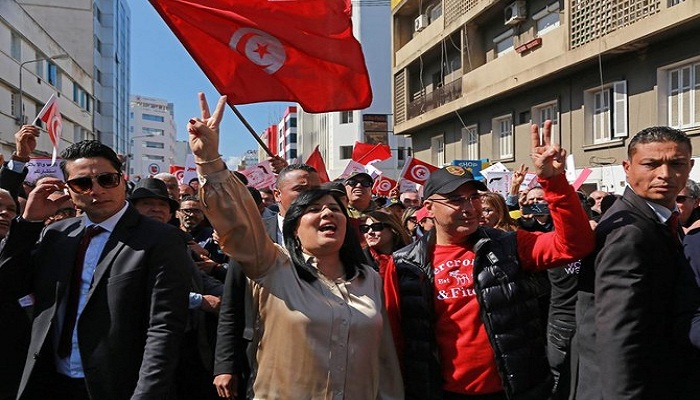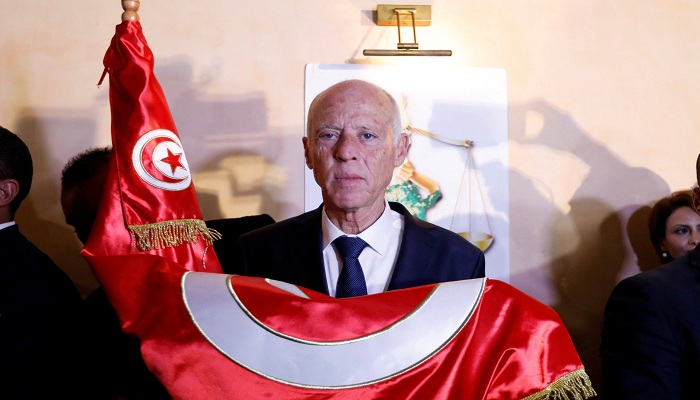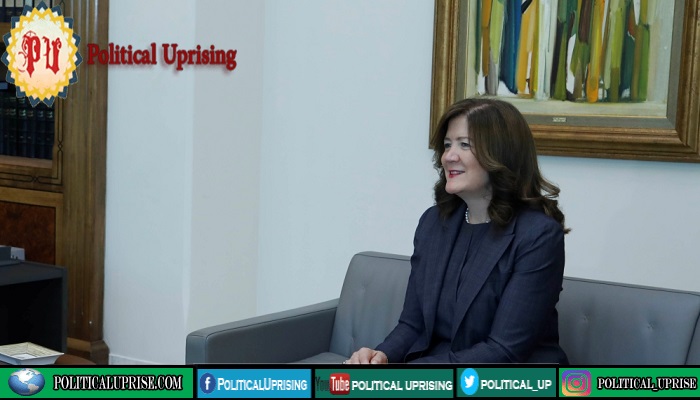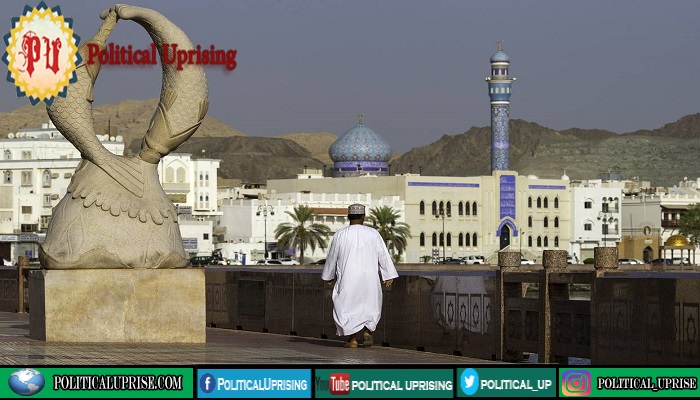Referendum on President Saied’s new constitution will be on Monday, signals imminent undoing of the country’s post-revolution political transition.
President Kais saied’s opposition still not at one page while just few hours left in the vote.
Large numbers of people supports new constitution too says it will change fate of country and will lead country towards economic growth track again.
Resident of Tunis Mohamed Ali Ktari says, “They (opposition parties) want to use Islam to benefits themselves, we want to change our economic situation and want change hence we are voting for referendum.”
Only hours away from the vote, opponents of the new constitution are planning on holding separate demonstrations, rather than coalescing around one mass movement.
“I cannot demonstrate alongside Citizens Against the Coup because they’re allied with Ennahdha, and I cannot be with Abir Moussi,” said Ahlem Bousserwel, the general secretary of the Tunisian Association of Democratic Women, who will hold a demonstration with other feminist and human rights groups on Friday.

Opponents to Saied’s new constitution says, “It represents a dangerous turning point that exposes Saied’s aim to consolidate his one-man rule by turning Tunisia’s young democracy officially and through seemingly legal means into an autocracy.”
Some say they should take advantage of the general lack of support for the document and vote “no”, while others are of the opinion that the referendum should be boycotted, so as not to legitimise the process.
The movement has struggled to have a united voice ideological divisions mean that the main anti-Saied grouping, Citizens Against the Coup, has faced difficulty attracting support from some on the liberal left because it includes members of the Ennahdha Party amongst its ranks, as well as other political parties.
Protesters gather in Tunis against president’s plan for constitution
Many of the people on this side of the debate had previously supported Saied, and welcomed his decision last July to suspend parliament, where Ennahdha was the biggest party and dissolve the government.

Hedia Hussien a Tunisian journalist said, “according to new constitution Islam will no longer be state religion but country will be part of Islamic world and will foster to meet Islamic values and yes president must be Muslim. New constitution getting huge opposition mostly from political parties who were governing before, there are some flaws in it too which give immense authorities to president and upper hand on judiciary as well.”
Wajdi Mahouechi was serving a prison sentence at the time for his political activism and vlogging.
“When I heard this [that Saied was suspending parliament] I shouted for joy, I was so happy,” Mahouechi said.
However, after winning an appeal for early release, Mahouechi said that he did not find the changes he wanted, and started campaigning online with comedy sketches satirising what he called Saied’s strange behaviours.
But like Bousserwel, Mahouechi is not sure whether he wants to join other anti-Saied groups.
Tunisian Business tycoon, politician released on bail
“I’m looking for my place, I cannot be with Ennadha, or the PDL or these other groups or parties,” Mahouechi said, adding that he was debating whether to join a Democratic Women protest and whether he should vote no, or just boycott the referendum.
Ennahdha supporters point out that the party has worked with several others in coalition governments, despite emerging as the biggest party in parliamentary elections since 2014.

They feel they have been unfairly blamed for the country’s political and economic woes and have called for the opposition to Saied to unite.
Rached Jaidane, a political activist who was tortured during his 13 years in prison under the rule of former President Zine el-Abidine Ben Ali, says there has never been any debate over whether Saied is a dictator and has no problems marching alongside members of Ennahdha at Citizens Against the Coup demonstrations.
Tunisian Al Watania refuses to be part of parliamentary committee
At the 11th hour, Tunisian civil society is rallying against not just Saied’s proposed new constitution but against the whole referendum process that they say is completely illegitimate.
The National Salvation Front, a coalition of opposition parties, has called for a mass protest in the capital, Tunis on Saturday, where they will call for a boycott.
“It is a non-event, and not what the Tunisian people need right now,” said Ahmed Gaaloul, a policy adviser to Ennahdha leader Rached Ghannouchi.
“Our policy as part of the National Salvation Front is to boycott this illegal process and it is why we shall demonstrate on Saturday to ask people not to participate in this illegal process,” Gaaloul said.
Some parties, such as the centre-left Afek Tounes, have been putting up posters calling for people to vote “no” but with little time to campaign, let alone debate options, confusion abounds as to whether it is best to vote “no” or to boycott.
But some are deciding to head out to vote against the referendum, amongst them former supporters of Saied.
One of them, a founder of the Movement of 25th July, a prominent Facebook page set up to encourage Saied to take power back from the government last year, explained why.
Tunisia fears fresh political deadlock as PM resigns
“When I heard what the president was going to do, I was so happy,” the founder, who did not wish to be named, said, referring to the constitution.
However, after a year of continued campaigning, the founder was devastated to read the new constitution, which concentrates power in the hands of the president, and has left some secular Tunisians worried about religious conservatism and unchecked political powers.

Generally, there has been little support for the referendum process, with less than 450,000 Tunisians participating in the online consultation survey, and polls predicting turnout as low as 13 percent. The electoral authority, however, has not set a mandated minimum level of participation.
“Many people who voted for Kais Saied in 2019 have now turned against him,” said Amine Snoussi, a Tunisian political analyst and author.
Tunisian PM under pressure over conflict of interest allegations
“There are people who will vote because of societal issues, and there are those who will vote against the constitution because they fear political Islam,” Snoussi said.
Snoussi had warnings for supporters and opponents of a boycott.
Analysts says if new constitution adopted there will be high chances of parliamentary election soon.



